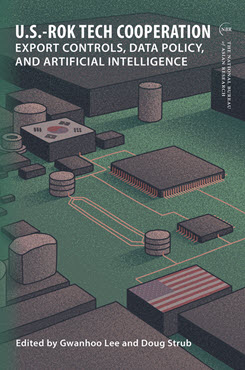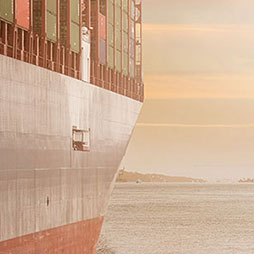Essay in NBR Special Report 107
Export Control Policies in U.S.-ROK Relations
This chapter analyzes the differing approaches to export controls in the U.S. and the Republic of Korea (ROK) and identifies potential pathways to strengthen collaboration, minimize challenges, and increase the effectiveness of these policies.
EXECUTIVE SUMMARY
MAIN ARGUMENT
In the first section, Mireya Solís examines the drivers, tools, and objectives of the U.S. approach to export controls and argues that greater allied cooperation, including between the U.S. and the ROK, is essential for U.S.-led export controls to be effective. Nevertheless, the challenges of export control coordination are steep. Gaps in threat perception over the risks posed by China’s technological deepening, different competitive niches within the vast semiconductor supply chain, asymmetrical vulnerabilities to potential Chinese retaliation, and dissimilar legal regimes governing the export of sensitive technologies and products can be daunting barriers limiting the degree of coordination, even among allied countries.
In the second section, Jungmin Pak, Hyunsoo Joo, and Haeyoon Chung assess the impact of the U.S. export controls on Korean companies. While the ROK government understands the reasoning behind the U.S.’s unilateral imposition of these controls, the authors argue that their erratic and unpredictable application, coupled with the absence of consistent long-term policies, creates unnecessary challenges for allied countries. While some steps have been taken to mitigate these negative impacts, a more stable and predictable policy environment is needed.
POLICY IMPLICATIONS
- The strict U.S. export controls implemented in recent years are ambitious in their objectives and execution, but to be effective they need the support of like-minded, technologically advanced countries.
- Export controls affect economies in unique ways, and more coordination and planning are needed to minimize negative consequences for partners and allies.
- Restrictions on the export of technology do not operate in a vacuum. Therefore, the design of export control policies should take into account the combined impact of other economic security measures such as FDI screenings, industrial policies, and subsidy programs.
- At a time when deepening geopolitical divides hamper the operation of multilateral export control regimes, the importance of developing effective plurilateral regimes has increased.
Mireya Solís is Director of the Center for East Asia Policy Studies at the Brookings Institution.
Jungmin Pak, Hyunsoo Joo, and Haeyoon Chung are attorneys at Lee & Ko’s international practice trade group.



